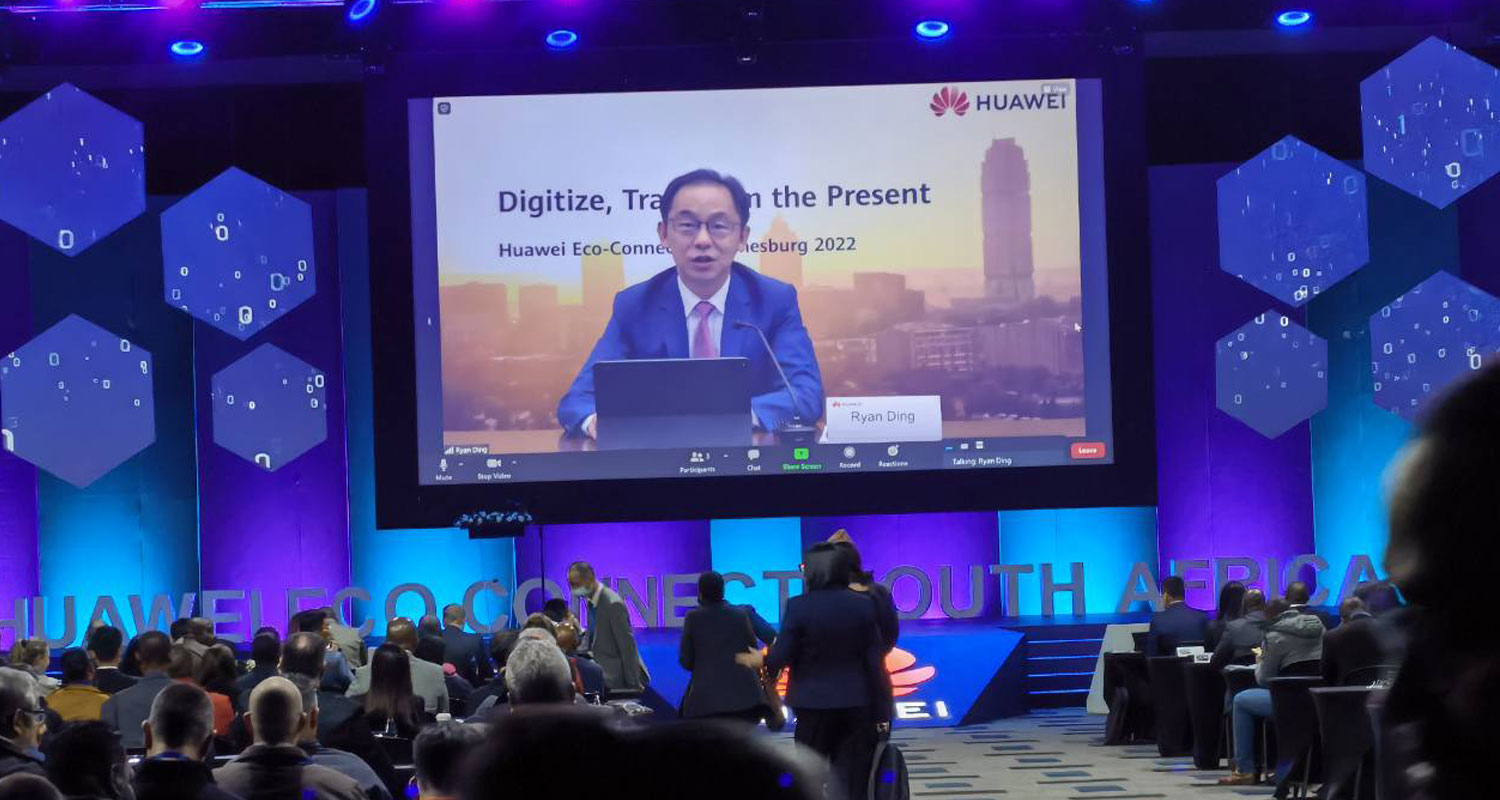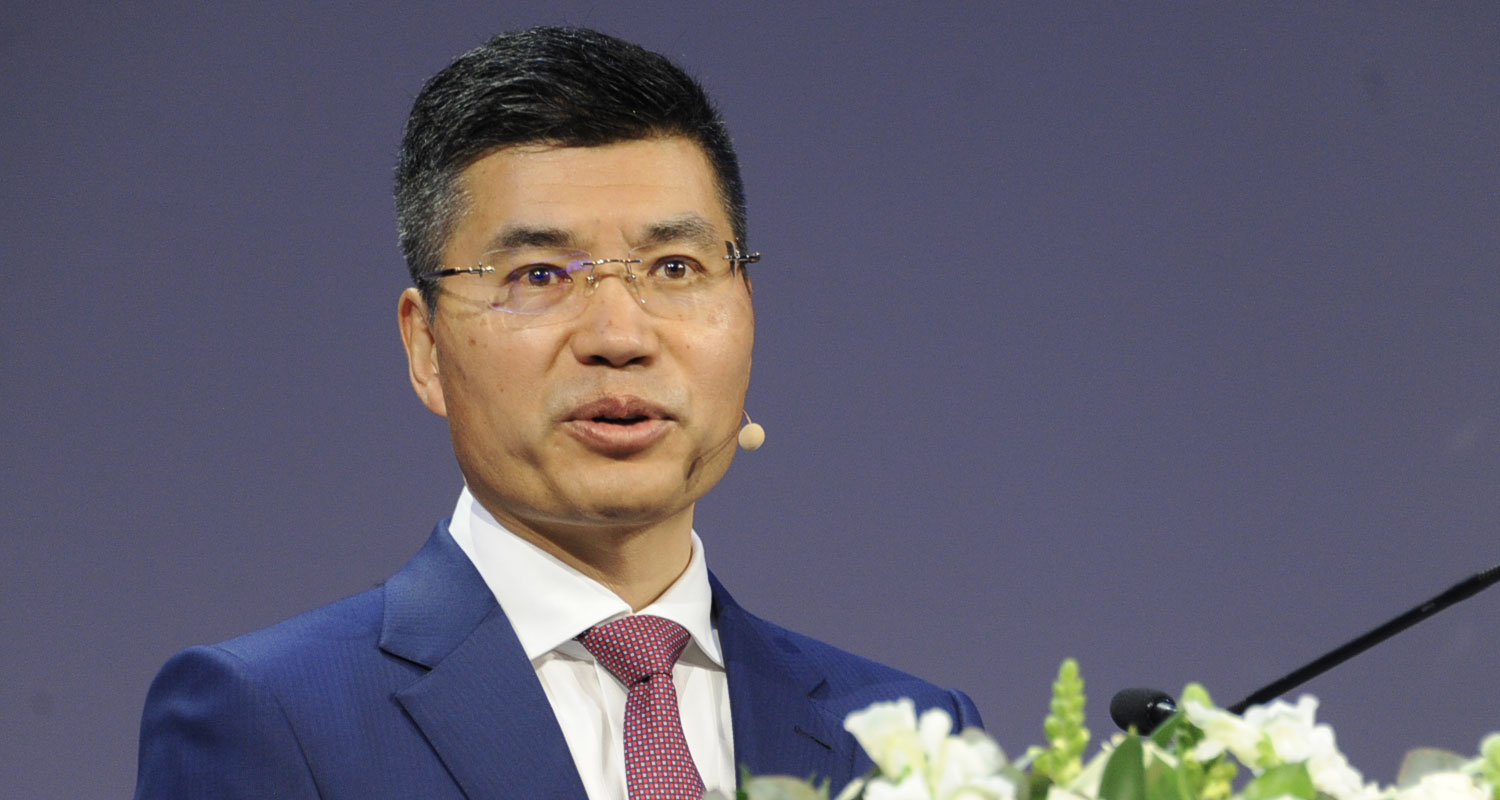
South Africa is well positioned to be the leading digital economy on the African continent — and even in the developing world. In doing so, it can bridge many of the social and economic divides both within the country and with the rest of the world. That’s going to be crucial, especially as digital plays an increasingly large role in the global economy. But getting to that point will require extensive investment in innovation and digital skills as well as partnerships between state players, enterprise-scale corporations, and small, medium and micro enterprises.
Fortunately, as the speakers at Huawei’s Eco Connect 2022 event that took place last week demonstrated, there is an unprecedented commitment to ensuring that the vision for a digitally transformed and inclusive South Africa becomes a reality.
That commitment starts with the government.
“Our department is acutely aware of the need for digital transformation in both the private and public sectors,” said Philly Mapulane, deputy minister of communications & digital technologies (DCDT).
“We in the DCDT subscribe to the vision of being ‘a leader in enabling a connected and digitally transformed South Africa’,” Mapulane said. “In our mission, we see the department leading South Africa’s inclusive digital transformation journey through creating an enabling environment towards a digital society to foster socioeconomic growth.”
The deputy minister outlined the government’s vision for South Africa to be the number one economy in Africa and the wider developing world across a number of technological fields including mobile connectivity, mobile broadband, cloud, software development and talent building.
He acknowledged that partnerships are crucial to achieving this ambition and singled out Huawei for the various initiatives it has in developing these fields.
Appreciation
“As the department of communications & digital technologies, we would like to take this opportunity to appreciate and thank Huawei for its continuous partnership and involvement in South Africa over the years,” he said, pointing to the company’s investments in digital infrastructure and skills development. The latter includes Huawei’s Seeds for the Future, ICT Academy Programme and 4IR talent training initiatives.
This was echoed by the department’s acting director-general Thulisie Manzini.
“The department of communications & digital technologies acknowledges with much appreciation the partnership we have with Huawei and the contributions made towards digital transformation in the various areas mentioned by the deputy minister,” she said. “Digital transformation is a massive task that cannot be done by government alone. We rely on our partnerships to ensure that digital transformation reaches every corner of the country and not only reserved for the privileged few.”
Ryan Ding, global president of the Huawei Enterprise Business Group, provided a commitment that these kinds of investments would continue.
‘Actively investing’
“Huawei is actively investing in South Africa,” he said, adding that it will “continue to focus on ICT and digital innovation, facilitating digital transformation”.
As Leo Chen, president of Huawei Southern Africa pointed out, this is because Huawei sees the country’s clear potential, particularly within a global context. “The global digital economy is growing twice as fast as GDP,” he said. “Africa’s digital economy is also poised to explode.”
Chen pointed out that by 2025, one in six of the world’s Internet users will be African and that the South African government plans for the digital economy to make up 50% of GDP by 2025.
“South Africa is well poised to make that transition,” he said, pointing to the country’s 85% mobile broadband penetration, growing cloud and artificial intelligence capabilities, and the promising developments taking place in the energy sector.

But, he added, realising that potential requires a combination of collaboration and long-term vision. “We need to work together, just like we worked together in the past two years,” he said, speaking to the work Huawei and its partners did through the course of the Covid-19 pandemic, including providing connectivity to more than 3 000 schools and 600-plus hospitals.
Chen also announced that Huawei Cloud’s third availability zone (AZ) is set to go live later this year, three years ahead of schedule. Once live, the AZ will halve cloud latency. “South Africa is an important strategic market for Huawei Cloud,” he said.
He also outlined Huawei’s commitment to helping drive South African innovation through initiatives such as its Open Lab, Joint Innovation Centre and POC Lab. “We want our partnerships to help South African companies build South African solutions,” he said.
Huawei South Africa CEO Spawn Fan further underlined the importance of partnerships to what Huawei has been able to achieve through its 24 years of operation in South Africa.
Partners
“We’ve supported South African operators to build more than 2 800 5G base stations and have more than a thousand registered SMME partners,” he said. “We need to enable local partners and people to get the most advanced technology.”
Some 96% of Huawei South Africa’s sales are also done through partners, a number it wants to increase to 100% in the near future.
As it looks to further cement and grow its partnerships, Huawei is increasing the incentives it offers partners and will increase by 35% its funded hand (FH) in partners. Fan also announced that Huawei Cloud will invest R100-million in a thousand start-ups over the next three years.
The fruits of the relationships Huawei has with its customers in both the public and private sectors are paying off, too.

“On 22 June, we launched the first phase of the State IT Agency (Sita) innovation centre in partnership with Huawei,” said Sita executive Ntutule Tshenye. The innovation centre is aimed at fostering ICT talent and growing SMMEs in the sector.
Vumatel CEO Dietlof Mare, meanwhile, pointed out that Huawei technologies and solutions have been crucial to his company’s ability to connect 1.5 million South African homes with fibre, including the launch of its prepaid fibre offerings, which are crucial to closing the country’s digital divide.
“Huawei was with us from the beginning,” he said. “You need a company with the focus and the skillset and for us that was Huawei.”
Robert Gumede, founder of IT firm Gijima, meanwhile pointed out that it hadn’t lost a single client when partnering with Huawei on projects. “It is good for business to have a partner like Huawei,” he said. “They are there to walk with you to the clients and put together a superior proposition.”
About Huawei
Huawei is a leading global provider of ICT infrastructure and smart devices. With integrated solutions across four key domains – telecoms networks, IT, smart devices and cloud services – we are committed to bringing digital to every person, home and organisation for a fully connected, intelligent world.
Huawei’s end-to-end portfolio of products, solutions and services are both competitive and secure. Through open collaboration with ecosystem partners, we create lasting value for our customers, working to empower people, enrich home life, and inspire innovation in organisations of all shapes and sizes.
At Huawei, innovation focuses on customer needs. We invest heavily in basic research, concentrating on technological breakthroughs that drive the world forward. We have more than 180 000 employees, and we operate in more than 170 countries and regions. Founded in 1987, Huawei is a private company fully owned by its employees.
For more information, please visit Huawei online at www.huawei.com or follow us on Twitter, Facebook, LinkedIn or YouTube.
- This promoted content was paid for by the party concerned




